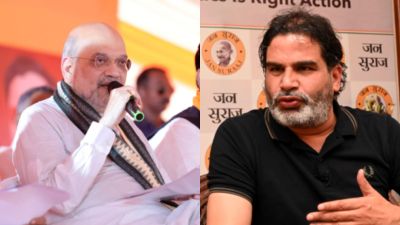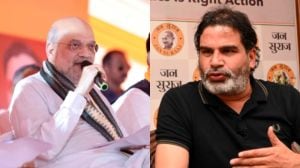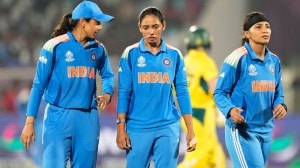It takes vision to be a nation
India has been independent for over five decades but the idea of nationhood has not taken root in our country. Our leaders, preoccupied with...

India has been independent for over five decades but the idea of nationhood has not taken root in our country. Our leaders, preoccupied with the short-term quest for power, do not have a vision of an integrated nation.
We must not forget we fought for independence for the country as a whole. The British did not care about India’s future; their only aim was to exploit the natural resources of our country. They felt it necessary to create divisions in our society in order to consolidate their hold. The consequence was the partition of our country into two nations.
After Independence, our leaders began viewing the country in parts in order to secure and retain political power. Casteism is outdated and irrelevant now. Yet in independent India, our leaders are resurrecting its corpse. Political leaders raise the flag of regionalism in their quest for power. Such a pursuit of political power has narrowed the outlook of political leaders to the straitjackets of casteism, regionalism and communalism.
To obtain independence, we accepted the division of our country on the basis of religion. Yet, there are more than 120 million Muslims in India. India has never been a single faith country. Multi-culturalism is our tradition. Can India progress if Hindu-Muslim rivalry is allowed to continue? Is the future well-being of these two communities of a different kind? There is need to follow a one-nation view. Unfortunately, there is no movement in this direction. A one-nation view cannot thrive if we depend on those very leaders who have acquired political clout on the basis of divisive agendas. Amity exists between the two communities at the grassroot level. The disturbances are caused by the machinations of the political leaders and therefore there is need to change the direction of the politics from above. The prevailing attitude of accepting any and every kind of bigotry in the quest of political power must change.
From 1952, elections in the country have been held on the basis of adult franchise. All of us know that black money is used in elections, and that such monies are acquired only through corruption. All the governments, in the states and at the Centre, are formed on the basis of the black money spent in elections. Is this conducive to ethical behaviour in society? Can resort to such immoral practices bring about an ethical ethos? Can such administrations reduce unemployment? Can such governments uplift the downtrodden? Can this practice integrate our society?
Elections are the basis of democracy and funds are necessary for electioneering. But this bald logic will not help to strengthen democracy for the greater good of the masses or end political opportunism. It only encourages instability. Political alliances bereft of shared developmental agendas are ruling the roost. They are formed not for the betterment of the country but for enjoying political power.
The meaning of democracy is that no citizen should be deprived. As long as there is no gainful employment for every able person, there can be no end to deprivation. Such an enabling environment is dependent on proper education and appropriate health services for all. Where are the political leaders working in this direction?
Engagement in developmental work in Assembly and Lok Sabha constituencies should be the primary commitment of those wanting to contest elections. Then there will be no need to hoard black money for contesting elections. Voters themselves will be eager to elect such persons as their representatives.
Currently every MP gets Rs 2 crore every year for developmental work in his/her constituency. In addition, there is the constituency allowance. My experience is that these amounts are adequate for substantial developmental work in the constituencies.
If an MLA or MP does developmentalal work, then he or she is equipped to make suggestions in the legislature or Parliament for planned development and raise the level of debate. The fruits of development will then reach the most downtrodden. Corruption can be eliminated. Ethical norms will prevail. Democracy will be deepened in meaningful ways.
If the present leadership does not proceed in this direction, then surely the new generation will fulfill the promise.



- 01
- 02
- 03
- 04
- 05




























